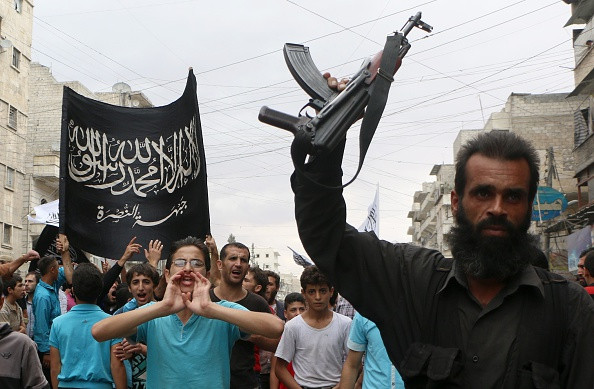Super Jihad: US Air Strikes Trigger Khorasan-Brokered Isis, Al-Qaeda Merger in Syria

The Khorasan group that was targeted in two US-led coalition airstrikes is allegedly trying to broker a merger between Islamic State (Isis) and Jabhat al-Nusra, the Syrian branch of al-Qaeda.
"Khorasan sees its role now as securing an end to the internal conflict between Islamic State and al Nusra," said a senior rebel source, according to a Daily Beast report.
What made the possibility of their coming together are the US airstrikes. Al Nusra knows more airstrikes are coming, so why wait. If the Americans are going to lump them together with ISIS, maybe best to join forces.
The three groups involved in the merger talks include, Khorasan, IS and al-Nusra, all of which were a part of al-Qaeda originally.
Jamie Dettmer of the Daily Beast said, "first results are already being seen on the ground in northern Syria with a coordinated attack on two rebel militias favored by Washington."
Meanwhile, US officials deny any collaboration between IS and al-Nusra, and raise doubts on the prospects of a merger or long-term association.
"I find it hard to believe that al Nusra and Islamic State could sink their differences. The rift between them is very deep," said a former senior administration official.
Senior Syria opposition sources, however, insist that a merger is very much under way, triggered by none other than Washington.
"What made the possibility of their coming together are the airstrikes. Al Nusra knows more airstrikes are coming, so why wait. [If the Americans are going to lump them together with ISIS, maybe best to join forces]," said an opposition source.
Earlier in the month, IS reportedly sent over a hundred fighters to assist al-Nusra in its assault against the Syrian Revolutionaries Front in the Idlib province.
"Da'esh [IS] fighters weren't really needed. Al Nusra had sufficient numbers but the support given is highly symbolic," said one of the sources.
© Copyright IBTimes 2025. All rights reserved.






















